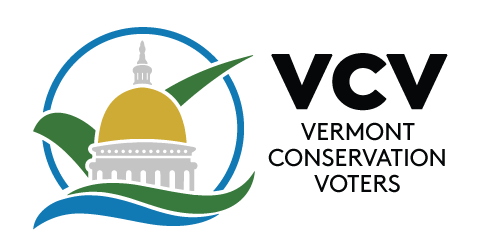Montpelier, VT – The Vermont Natural Resources Council (VNRC) and Vermont Conservation Voters (VCV) applaud the Vermont Legislature for making historic investments in climate action, clean water, affordable housing, broadband, and other critical programs that will benefit Vermont’s people, environment, and communities.
“We are in a historic moment. State lawmakers today committed to unprecedented levels of investment in a better and more equitable Vermont, as they allocated federal funds to fight climate change, build smart growth affordable housing, clean up polluted waters, and support the state’s farm and forest economy,” said Brian Shupe, Executive Director of VNRC. “These investments will make Vermont’s communities, and our environment, stronger,” he continued.
By making strategic and forward-looking use of one-time federal funds from the American Rescue Plan Act (ARPA), the state budget includes significant investments in weatherization funding and clean energy programs for low- and moderate-income households; more affordable and accessible transportation options; and programs that will help ensure clean water for all while modernizing our outdated water infrastructure. The budget also invests in programs that will enhance affordable housing, and the economic viability of the state’s downtowns and village centers by promoting smart growth in these areas while maintaining natural areas and our working lands.
Job-Creating, Cost-Cutting Investments in Climate and Clean EnergyThe Legislature committed an unprecedented amount of funding: $250 million in climate and clean energy programs that will put Vermonters to work, save people money on their monthly energy bills and begin to address disproportionate energy burdens and other historic inequities. This historic investment in building a clean energy economy will be critical in the state’s successful implementation of the Climate Action Plan, which is being developed following the enactment of the Global Warming Solutions Act last fall.
“This is a huge day for Vermont, as we meet the climate crisis head-on and work to build a healthier, more resilient, and more equitable economy together,” said Lauren Hierl, Executive Director of Vermont Conservation Voters.
The state budget included increased funding for low- and moderate-income weatherization programs, funding for low-income renewable energy programs, and support to help Vermonters and communities access clean and efficient energy solutions. The Transportation bill included increased incentives to help more people access high-efficiency and electric vehicles, EV charging stations, fare-free public transit, and electric bikes.
Unprecedented investments in clean water
Building on the state’s long-time commitment to cleaning up polluted waters and modernizing our water infrastructure, lawmakers today put forward an unprecedented level – $225 million – of clean water funding over the next three years.
The budget maintains the state’s critical annual investment in the Clean Water Fund, which is focused on cleaning up Lake Champlain and other polluted waters. The budget also allocated $115 million in ARPA funding to help modernize our drinking water and wastewater systems, address combined sewer overflows, remove toxic contaminants from water supplies, implement dam safety projects, and address other water infrastructure needs.
Significant investments in affordable housing and Vermont’s downtowns, working lands, parks, and natural areas
“In today’s budget, the Vermont Legislature made a strong commitment to supporting key economic revitalization, land conservation, and land use programs that further the state’s smart growth goals,” said VNRC’s Executive Director Brian Shupe.
In particular, Shupe cited a historic multi-year investment for the Vermont Housing and Conservation Board at $94 million, and one-time increases of $3 million for the Working Lands Enterprise Fund and $2 million to state parks. Other programs were funded that support our downtowns and villages: $1.5 million for the Better Places programs, $5 million for transportation grants in Vermont’s downtowns and villages, and $11 million to clean-up contaminated “brownfield” sites.
“We are pleased to see the Legislature’s strong commitment to investing in Vermont’s communities – including our historic downtowns and villages, enhancing access to affordable housing, while protecting natural areas and our working lands. These expenditures are especially important as we recover from the COVID-19 pandemic and prepare for other health, economic, and environmental challenges that lie ahead,” said Shupe.
Hierl added, “The budget passed by the Legislature today makes an unprecedented and important statement about the need to invest in climate action, clean water, broadband, affordable housing, and the economic viability of our downtowns and working lands. We are celebrating this moment, and we also look forward to partnering with the state of Vermont as we make the most of this opportunity to build a foundation toward a more sustainable and equitable state.”
Contact:
Brian Shupe, VNRC, bshupe@vnrc.org, 802-498-5300
Lauren Hierl, VCV, lhierl@vermontconservationvoters.org, 860-670-2629
###
